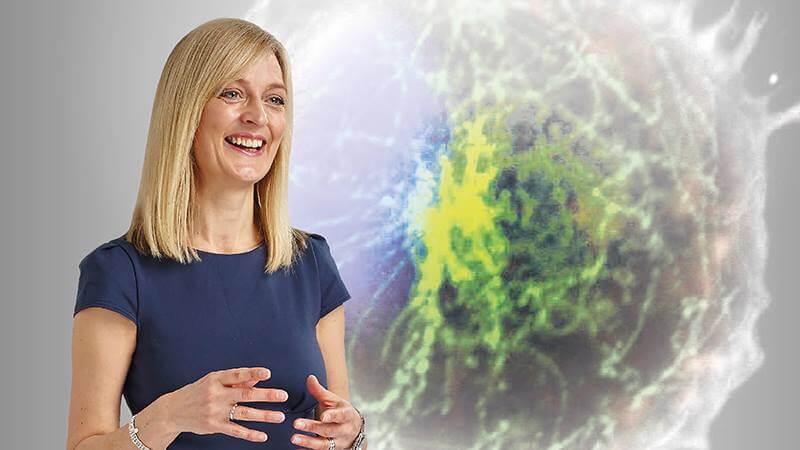Protecting human health

We work with governments and industry worldwide, to drive innovative research solutions into the safe use of nanotechnology to protect and improve human health.
Nanotechnologies are generating a diverse array of engineered nanomaterials (particles or structures thousands of times smaller than the diameter of a human hair) for use in many consumer projects. Examples include drug delivery agents, medical imaging, food ingredients, food packaging, clothing, toys, cosmetics, sunscreens, paints and coatings.
Their widespread use is driven by the interesting properties of nanomaterials that differ to larger structures. For example, nano-sized gold is red, pink or purple, is highly reactive and can be used to image and kill tumours inside the body.
This widespread use of nanomaterials means that human and environmental exposure is likely, driving the need to understand their potential hazards and risks. Professor Stone's work focuses on assessing the hazards of nanomaterials, but more importantly developing strategies that allow others to assess the hazards and risks of nanomaterials in a reliable, robust and streamlined manner.
Real-world impact
Professor Vicki Stone is working with regulators, government organisations, industries, consultants and academics to provide the tools needed to support the safe use and development of these new technologies. These tools include:
- a framework to allow nanomaterials to be grouped in scientific and logical way, allowing information from one nanomaterial to be read-across to another. This framework, co-ordinated by Professor Stone, will reduce the need to assess each nanomaterial individually. Read more about Gracious
- making three dimensional cellular models of the lung surface, the gastro-intestinal tract and the liver for assessing the potential toxicity of such nanomaterials. These models should be more physiologically relevant than existing simple cell models, and could be used to reduce reliance on animal testing. Read more about Patrols
- development of a risk management framework for nanomaterials used in medical applications. Read more about Biorima
Key information
Vicki Stone
- Professor
- v.stone@hw.ac.uk